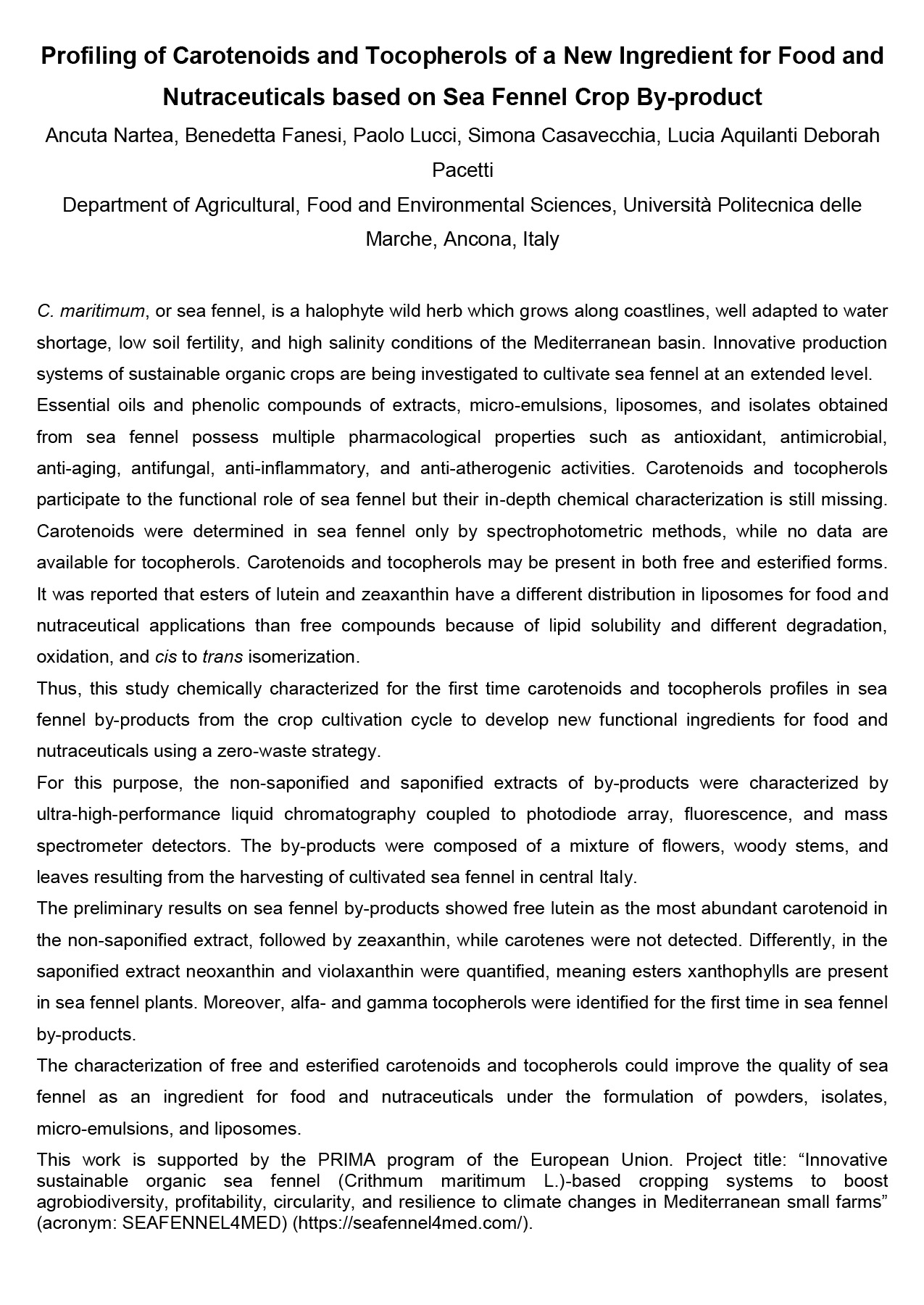C. maritimum, or sea fennel, is a halophyte wild herb which grows along coastlines, well adapted to water shortage, low soil fertility, and high salinity conditions of the Mediterranean basin. Innovative production systems of sustainable organic crops are being investigated to cultivate sea fennel at an extended level. Essential oils and phenolic compounds of extracts, micro-emulsions, liposomes, and isolates obtained from sea fennel possess multiple pharmacological properties such as antioxidant, antimicrobial, anti-aging, antifungal, anti-inflammatory, and anti-atherogenic activities. Carotenoids and tocopherols participate to the functional role of sea fennel but their in-depth chemical characterization is still missing. Carotenoids were determined in sea fennel only by spectrophotometric methods, while no data are available for tocopherols. Carotenoids and tocopherols may be present in both free and esterified forms. It was reported that esters of lutein and zeaxanthin have a different distribution in liposomes for food and nutraceutical applications than free compounds because of lipid solubility and different degradation, oxidation, and cis to trans isomerization.
Thus, this study chemically characterized for the first time carotenoids and tocopherols profiles in sea fennel by-products from the crop cultivation cycle to develop new functional ingredients for food and nutraceuticals using a zero-waste strategy.
For this purpose, the non-saponified and saponified extracts of by-products were characterized by ultra-high-performance liquid chromatography coupled to photodiode array, fluorescence, and mass spectrometer detectors. The by-products were composed of a mixture of flowers, woody stems, and leaves resulting from the harvesting of cultivated sea fennel in central Italy. The preliminary results on sea fennel by-products showed free lutein as the most abundant carotenoid in the non-saponified extract, followed by zeaxanthin, while carotenes were not detected. Differently, in the saponified extract neoxanthin and violaxanthin were quantified, meaning esters xanthophylls are present in sea fennel plants. Moreover, alfa- and gamma tocopherols were identified for the first time in sea fennel by-products.
The characterization of free and esterified carotenoids and tocopherols could improve the quality of sea fennel as an ingredient for food and nutraceuticals under the formulation of powders, isolates, micro-emulsions, and liposomes.
This work is supported by the PRIMA program of the European Union. Project title: “Innovative sustainable organic sea fennel (Crithmum maritimum L.)-based cropping systems to boost agrobiodiversity, profitability, circularity, and resilience to climate changes in Mediterranean small farms” (acronym: SEAFENNEL4MED) (https://seafennel4med.com/).
